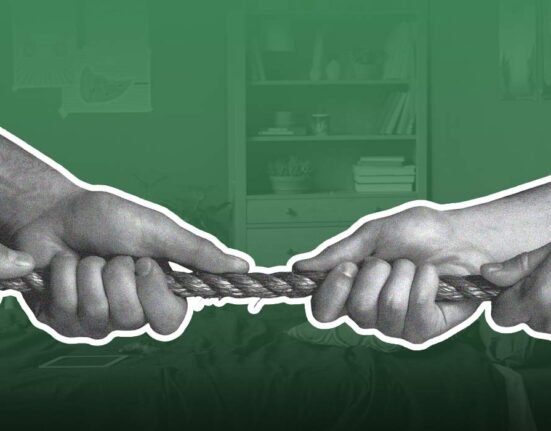Building boundaries with your parents is a challenging process as it is like cutting a few branches of a tree to build your shelter upon it. As children most of us live with our parents and we are compelled to depend upon them for our necessities. A parent should relate to their children differently in each phase of development. As you grow up you should be aware of your responsibilities and the parents should accept that their child is growing. The need for building boundaries and the problems relating to not having one is mostly observed when a child enters their teenage years.
When to Recognize the Need for Healthy Boundaries
When can you understand that you need to build or strengthen the boundary between you and your parent? Not every parent is toxic, but you should also be clever enough to understand when a parent turns toxic. If a parent is not considering your needs and abilities while making your career choice. If parents are constantly teasing you for your skin tone and body shape if they keep on comparing you with others by not recognizing your accomplishments, they neglect your opinions every time, If parents are abusive, overcontrolling, and blackmailing you then, this is a clear indication of toxic parenting and the need for building a healthy boundary.
According to Prakriti Sharma, a clinical psychologist, we need to understand the reasons behind children’s behavior and why they are trying to create distance from their parents. It may happen because of family dynamics. If children are unable to share their emotions with their parents. Families need to reflect on their dynamics to see if are providing a safe space to the child; can a child reach out to them without the fear of being scolded or without the guilt of letting down the parental expectations? It might not just be a problem of the child, but a problem of our larger social reality.

Parenting has a great role to play in the psychosocial development of the child. Inappropriate parenting can result in deviant children and thereafter antisocial adults in the future. A child needs to understand and act accordingly. A parent may try to become your best friend, but the truth is that both these relationships have unrelatable dynamics and this will not work for most people.
There are no steps to build boundaries, but there are a few points to be kept in mind while constructing it:
Respect is essential
A parent might mistakenly perceive building boundaries as disrespect many times. This is because a parent might feel that the child is trying to cut them out from their life. They feel like their child is no more valuing their affection and efforts. As a child, you must appreciate and thank your parents for their efforts, but also have the strength to voice your dissatisfaction with how you are being treated. Assertiveness is a skill that you should develop during your childhood as this can benefit you in later life.
There is a way to talk, whenever you want to share something negative about a person sandwich it with two positive comments so that the person will feel less offended. You can use these tips while talking with your parents and be careful about the usage of words and tone of voice.
The right time to Communicate
Communication is important in every relationship and every situation. You should not be speaking about your boundaries during a conflict as this can worsen the condition Sometimes, even if the parent understands they might not accept it in front of you due to ego in such a situation, so make sure you talk about this during a healthy conversation.
Accept them
Every person is Unique. Different generations have influenced our parents’ values and core beliefs due to their unique upbringings and circumstances. What is right for you might not be always right for them and what is right for your children might not be right for you. This is an impact of the generation gap that needs to be accepted. Your parents might not understand your idea of boundaries so you must explain it to them. They might not understand it always so do not be stubborn about making them understand it as this is hard instead, you can accept their beliefs and move forward and they too might accept yours with time.
Conflicts are common
Try to respond to the situation instead of reacting to it. During a dispute, teenagers naturally burst into anger as their bodies flood with hormones during this transition phase, which they cannot control. But after a conflict when the hormones are back to normal try to figure out what happened. Analyze the situation to understand where you went wrong and if possible be ready to apologize for the wrong choice of words and tone of voice that came out of you in the heat of the moment. Conflicts are usual, but healthily resolving a conflict is unusual.

According to clinical psychologist Priti Gupta, there are many reasons for creating distance with parents. They feel a generation gap between their parents and themselves, and sometimes they feel a lack of personal privacy in the family. Because of this, they try to maintain distance. To tackle this situation, parents can initiate healthy communication with their children and change the environment around them so that the children can feel more comfortable sharing their thoughts. The Art of Creating Healthy Boundaries with Parents
Self-Worth and Boundaries
Setting boundaries is important in any relationship. It is a form of self-compassion and self-love, feelings of guilt are very natural at the start of this process. When you become a teenager you should understand that the next stage is adulthood. You cannot be an adult in your behavior one fine day instead you should start the initial steps in your teenage years. You should be confident enough to express and live along with your thoughts, beliefs, and opinions. This will be difficult initially but later you will thank yourself when you start to experience the perks of having healthy boundaries as you see betterment in your relationship with others.
References+
- https://www.newportacademy.com/resources/restoring-families/parent-teens/?hl=en_IN
- https://www.charliehealth.com/post/setting-boundaries-with-parents
- https://www.terricole.com/5-signs-of-disordered-family-boundaries/
- https://www.choosingtherapy.com/setting-boundaries-with-parents/
- https://www.healthline.com/health/mental-health/set-boundaries-with-parents
- https://www.mindbodygreen.com/articles/setting-healthy-boundaries-with-parents
- https://www.ncbi.nlm.nih.gov/pmc/articles/PMC9108886/













Leave feedback about this